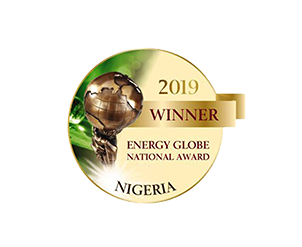F5 Tech for Good: Support for women smallholder farmers in Nigeria
Climate change increasingly affects agricultural productivity and exacerbates post-harvest losses, particularly among women smallholder farmers in Nigeria. A report by Nigerian Stored Products Research Institute indicated Nigeria suffered 50% post-harvest losses in agriculture annually, estimated at the economic cost of N3.5 trillion annually to the agricultural sector.
A need assessment conducted by Women Environmental Programme (WEP) to gather qualitative insights from women farmers regarding their experiences, challenges, and potential solutions related to climate change impacts on post-harvest losses shows the lack of appropriate storage facilities, such as warehouses and silos, to protect harvested crops. Participants also indicated insufficient access to drying and processing technologies, such as solar dryers, limited the farmers’ ability to preserve their farm produce effectively. Limited knowledge of post-harvest management techniques, including sorting, grading, and packaging, affected product quality and market value. Climate change-related factors, such as unpredictable rainfall patterns and extreme weather events, further exacerbate post-harvest losses and make it difficult for women farmers to preserve their produce effectively.
Evidence also demonstrated farmers relied on traditional methods such as sun-drying and using local herbs to control pests. Regarding potential solutions, participants emphasized the need for training and capacity-building programs on climate-smart agriculture, including improved post-harvest management techniques. Improvement of storage and processing infrastructure, including the introduction of solar dryers and cold storage facilities.
As part of the intervention measures, WEP obtained funding from F5 Tech for Good through CAF America to support women smallholder farmers in Nigeria to implement these activities:
Awareness and Training: WEP will organize two (2) days awareness programs and training sessions to educate 100 women smallholder farmers and enhance their knowledge and skills in climate-resilient agriculture and post-harvest management. The training will cover capacity-building programs on climate-smart agriculture, including improved post-harvest management techniques, production of organic fertilizer and pesticides using Neem leaves/seeds, and appropriate land and soil management techniques.
Construction and installation of a Solar Dryer: Tent The project will facilitate the acquisition of materials and train group members to construct and install a Solar Dryer Tent and provide training on the operation, maintenance, and maintaining hygiene and quality standards of the solar dryer tent to the group members.
Identify and strengthen existing women groups: The initiative will identify existing women farmer groups specializing in fruit and vegetable farming/business. Supporting an existing group will provide a platform for pooling resources, sharing costs, and collectively benefiting from the solar tent dryer. WEP will train the group in financial management and cooperative governance.
The overall goal is to reduce the impact of climate change, limit post-harvest losses through innovative technology.
The project will promote knowledge sharing experiences and success stories with other communities and advocate for scaling up of the initiative to reach more women smallholder farmers and create a broader impact.
The use of solar dryer tent technology is crucial for smallholder women farmers in Nigeria for several as it reduces post-harvest losses and reduces dependency on traditional sun-drying methods which unreliable and time-consuming, lead to spoilage and reduce quality of the produce.
The initiative will increase the income of smallholder women farmers by reducing post-harvest losses and improving the quality of their crops which they can sell at a higher price, as it will be of better quality and have a longer shelf life.
Furthermore, the project will contribute to improving food security, through the solar dryer tents crops can be preserved for longer periods, which can help to improve food security in the community. By reducing post-harvest losses, more food can be available for consumption and commercial purposes, and this can contribute to reducing food insecurity in Nigeria.
The project is designed to promoting sustainability, reduce emission and promote sustainable practices. The solar dryer tent as the name implies will use solar energy, which is a clean and renewable energy source to dry crops, smallholder women farmers can reduce their dependence on preservation methods that use fossil fuels which can help to reduce greenhouse gas emissions and the training on organic farming will reduce the use of chemicals and promote sustainable agricultural practices.


